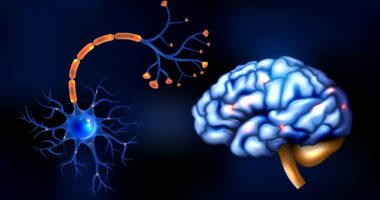Alzheimer’s disease is a progressive neurological disorder that affects memory, thinking, and behavior. While it’s commonly associated with older adults, early-onset Alzheimer’s can develop in people younger than 65. Detecting the symptoms early is crucial for proper management and care. Here, we explore the common symptoms of early-onset Alzheimer’s disease, highlighting the signs that you should watch for if you or a loved one may be at risk.
1. Memory Loss that Disrupts Daily Life
Memory loss is one of the most recognizable early symptoms of Alzheimer’s disease. However, in early-onset Alzheimer’s, this isn’t your typical forgetfulness. It’s more frequent and can disrupt daily activities. People may repeatedly forget recently learned information or important dates or ask for the same information. They may increasingly rely on memory aids or family members for things they used to handle independently.
2. Difficulty Planning or Problem-Solving
Tasks that involve planning or problem-solving can become challenging. Individuals may struggle with tasks they once managed easily, such as paying bills or following a recipe they’ve used many times before. Additionally, they may have trouble concentrating and take much longer to complete tasks that once felt routine.
3. Confusion with Time or Place
A hallmark symptom of early-onset Alzheimer’s disease is becoming disoriented in terms of time and place. Someone may forget where they are, how they got there, or even what day or season it is. They may also lose track of the passage of time, forgetting important appointments or events.

4. Difficulty Completing Familiar Tasks
As Alzheimer’s progresses, even familiar tasks become increasingly difficult. This could involve driving to a well-known location, managing work-related tasks, or remembering how to use household appliances. The inability to complete once-familiar tasks can be frustrating and frightening for the individual and their family.
5. Misplacing Items and Losing the Ability to Retrace Steps
Frequently misplacing things is another common symptom of early-onset Alzheimer’s. What differentiates this from normal forgetfulness is the inability to retrace steps to find the lost items. A person with Alzheimer’s might place objects in unusual places (like putting keys in the fridge) and may accuse others of stealing when they can’t find something.
6. Trouble Understanding Visual and Spatial Relationships
In some cases, Alzheimer’s disease can affect spatial relationships and depth perception, making it difficult to judge distances. This can lead to problems driving, navigating around familiar spaces, or even recognizing faces. Some individuals may find reading or interpreting images difficult, as the brain struggles to process visual information.
7. New Problems with Words in Speaking or Writing
Alzheimer’s can also impact a person’s ability to follow or join in conversations. They may stop during a conversation and not know how to continue or repeat themselves. Finding the right word can become challenging, or they may call objects by the wrong name (e.g., calling a watch a “hand clock”). Writing may also become harder, with increased spelling or grammatical errors.
8. Poor Judgment and Decision-Making
Poor judgment is another common symptom of early-onset Alzheimer’s disease. This might manifest in making risky decisions with money, like giving large sums to telemarketers or neglecting personal hygiene. The ability to evaluate situations and make sound decisions is impaired, making individuals more vulnerable to scams or other dangerous situations.
9. Withdrawal from Work or Social Activities
As Alzheimer’s disease progresses, individuals may withdraw from social activities, hobbies, or work. They may struggle to keep up with favorite pastimes, avoid conversations, or shy away from gatherings because of difficulty remembering names or following discussions. A once-engaged person may seem isolated or disinterested in things they used to enjoy.
10. Changes in Mood and Personality
Significant mood swings or personality changes are also common symptoms of early-onset Alzheimer’s. Individuals may become unusually anxious, confused, suspicious, or depressed. In some cases, they may develop feelings of paranoia or distrust toward family members or friends. As the disease progresses, these emotional shifts can intensify, leading to irritability, aggression, or increased dependence on caregivers.
What to Do If You Notice Symptoms
Early detection is critical in managing early-onset Alzheimer’s disease. While there is no cure for Alzheimer’s, treatments are available that may help slow the progression of the disease, and early intervention can improve quality of life. If you notice any of these symptoms in yourself or a loved one, it’s important to consult a healthcare professional. A comprehensive medical evaluation, including memory tests and brain imaging, can help determine whether Alzheimer’s or another condition is responsible for the symptoms.
Conclusion
Early-onset Alzheimer’s disease is a serious condition that can significantly impact a person’s life and the lives of those around them. Being aware of the early symptoms is key to early diagnosis and intervention, which can improve long-term outcomes. Memory loss, confusion, difficulty completing familiar tasks, and mood changes are all potential indicators of Alzheimer’s. If you notice these signs, reach out to a healthcare provider to discuss options for testing and treatment.
Stay proactive, and don’t ignore early warning signs, as catching Alzheimer’s disease early can make all the difference in the journey ahead.









